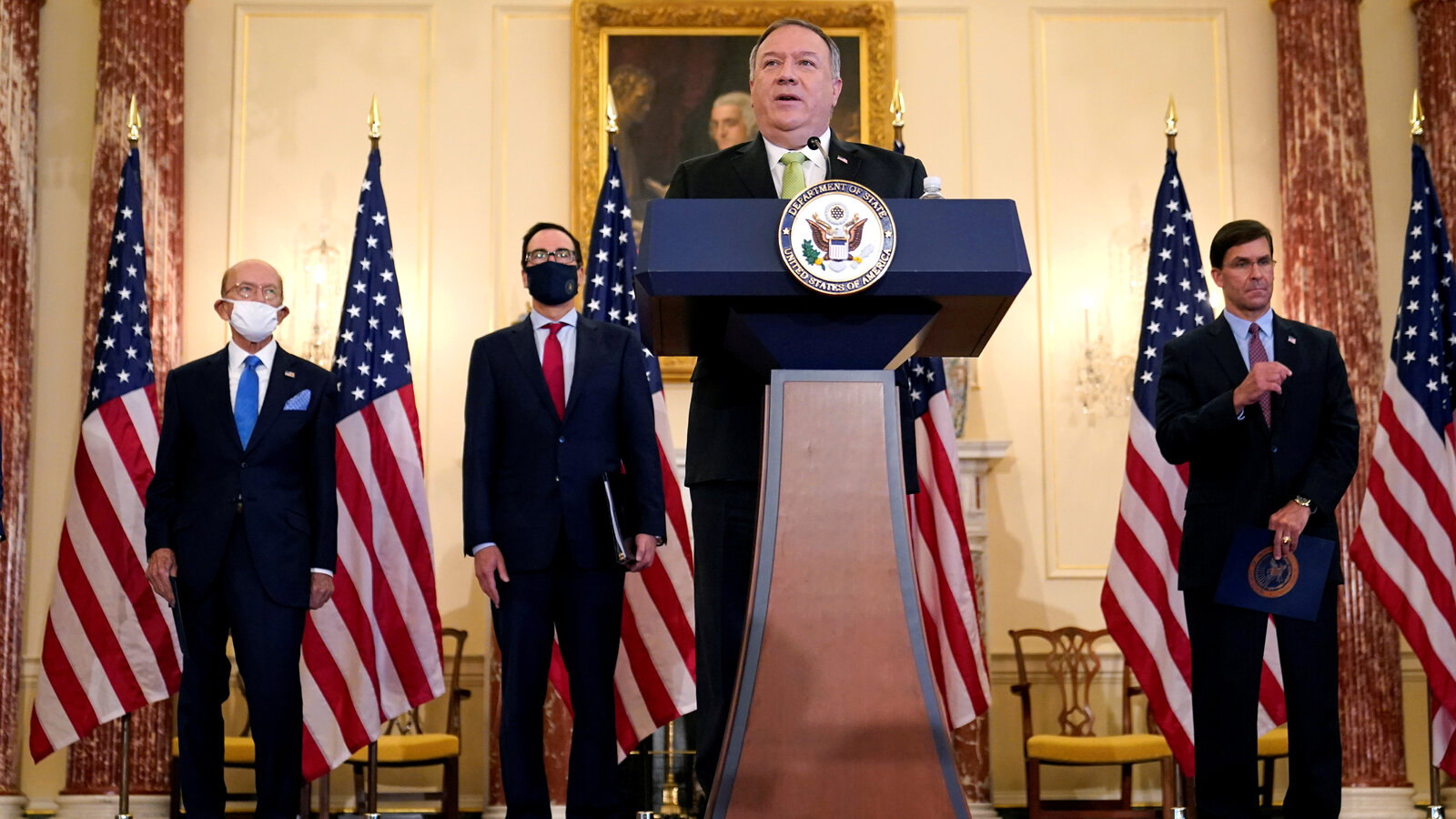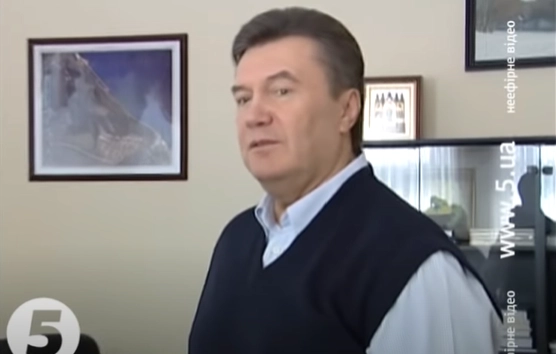US Sanctions On Russia: Graham's Ultimatum Following Ceasefire Rejection

Table of Contents
Graham's Ultimatum and its Implications
Senator Graham's statement, delivered with considerable force, called for a significant intensification of US sanctions on Russia following their rejection of a proposed ceasefire. His core demand centered on crippling the Russian economy further to pressure the Kremlin into ending hostilities in Ukraine. This represents a significant hardening of the US stance.
-
Specific sanctions mentioned or implied: Graham's ultimatum implied targeting additional sectors of the Russian economy, potentially including further restrictions on energy exports, a complete ban on Russian technology imports, and the freezing of assets held by a wider range of Russian oligarchs and entities connected to the Putin regime. He also hinted at exploring new avenues for sanctions targeting individuals within the Russian military command structure responsible for war crimes.
-
Political context: Graham's statement reflects a growing sentiment within the US Congress and among certain members of the Biden administration towards a more aggressive approach to sanctions against Russia. This aligns with the broader US foreign policy objective of deterring further Russian aggression and supporting Ukraine's defense.
-
Legal and practical feasibility: While the legal basis for implementing many of these heightened sanctions exists within existing frameworks, the practical challenges remain considerable. Determining the precise targets and ensuring effective enforcement across the globe requires significant international cooperation and sophisticated intelligence gathering. Furthermore, unintended consequences, such as further global economic instability, must be carefully considered.
Russia's Rejection of a Ceasefire and its Consequences
Russia's rejection of the ceasefire proposal, proposed through various international channels, underscores its continued commitment to its military objectives in Ukraine. This decision has had significant repercussions on a global scale.
-
Geopolitical motivations: Russia's rationale likely stems from a belief that it can achieve its military objectives through continued aggression and a calculation that the costs of a protracted conflict are outweighed by the benefits of territorial gains and undermining the West. Furthermore, the rejection signals a rejection of international norms and diplomacy.
-
Military and strategic implications: Continued conflict carries the risk of further escalation, including potential expansion of the conflict beyond Ukraine's borders. It also risks further civilian casualties and widespread humanitarian suffering. The longer the conflict continues, the more likely the emergence of unforeseen challenges to regional security.
-
International reactions: The international community overwhelmingly condemned Russia's rejection of the ceasefire, reinforcing the isolation of Russia on the world stage. This international condemnation further strengthens the momentum behind enhanced sanctions and increased support for Ukraine.
The Expanding Scope of US Sanctions on Russia
The existing US sanctions regime against Russia, already extensive, is likely to undergo substantial expansion in response to the ongoing aggression and ceasefire rejection.
-
Existing sanctions and their effectiveness: Current sanctions have targeted various sectors of the Russian economy, including finance, energy, and technology. While their effectiveness is debated, they have undoubtedly imposed significant economic pressure on Russia, albeit not enough to change the course of the war.
-
Potential new targets: Future sanctions could include targeting specific Russian industries like the defense sector, aerospace, and nuclear power, along with the assets of key individuals within these industries. Further tightening of restrictions on Russian banks and financial institutions and broadening the scope of existing export controls could be anticipated.
-
International cooperation: Enforcing effective sanctions requires strong international cooperation. The US will need to maintain and strengthen its alliances with European nations and other partners to ensure that the expanded sanctions regime is implemented consistently and effectively across multiple jurisdictions.
Economic Impact of Increased Sanctions on Russia
Intensified sanctions will likely have a profound and multifaceted impact on the Russian economy.
-
Impact on specific sectors: The energy sector, already under pressure, would likely face further disruptions. The financial sector could experience a further credit crunch, limiting access to international capital markets. The technological sector, already heavily sanctioned, could see complete isolation from Western technology and expertise.
-
Potential for social unrest: The economic hardship caused by tighter sanctions could fuel social unrest and political instability within Russia, posing a potential challenge to the Putin regime's authority.
-
Global repercussions: Disrupting Russian energy supplies carries the risk of exacerbating global energy prices and causing widespread economic repercussions across the globe. This risk highlights the complexity and potential unintended consequences of increased sanctions.
Conclusion
Graham's ultimatum represents a significant escalation in the conflict, with the potential for far-reaching consequences for both Russia and the global economy. Russia's rejection of a ceasefire has solidified the international community's commitment to further sanctions. The expanding scope of US sanctions on Russia necessitates a close monitoring of the economic and political developments in the region. Understanding the complexities of the US sanctions on Russia is crucial for navigating the ongoing geopolitical uncertainty. Stay informed about the evolving situation regarding US sanctions on Russia and their impact on international relations. Further research into the effectiveness of different sanction strategies is essential to predict the future of this dynamic conflict.

Featured Posts
-
 Allentowns Historic Penn Relays 4x100m A Sub 43 School Record
May 22, 2025
Allentowns Historic Penn Relays 4x100m A Sub 43 School Record
May 22, 2025 -
 Rosiya Pid Zagrozoyu Novikh Sanktsiy Initsiativa Senatora Grema
May 22, 2025
Rosiya Pid Zagrozoyu Novikh Sanktsiy Initsiativa Senatora Grema
May 22, 2025 -
 Google And Ai Investor Perspectives And Future Market Positioning
May 22, 2025
Google And Ai Investor Perspectives And Future Market Positioning
May 22, 2025 -
 Cwd Positive Elk Found At Jackson Hole Feedground
May 22, 2025
Cwd Positive Elk Found At Jackson Hole Feedground
May 22, 2025 -
 Understanding The Core Weave Crwv Stock Surge Analysis Of Todays Performance
May 22, 2025
Understanding The Core Weave Crwv Stock Surge Analysis Of Todays Performance
May 22, 2025
Latest Posts
-
 Jasprit Bumrahs Continued Dominance Icc Test Bowling Rankings
May 23, 2025
Jasprit Bumrahs Continued Dominance Icc Test Bowling Rankings
May 23, 2025 -
 Shadman Islams Match Winning Performance Against Zimbabwe
May 23, 2025
Shadman Islams Match Winning Performance Against Zimbabwe
May 23, 2025 -
 Icc Rankings Jasprit Bumrah Remains Number One Test Bowler
May 23, 2025
Icc Rankings Jasprit Bumrah Remains Number One Test Bowler
May 23, 2025 -
 The Surprising Truth About How The Who Got Their Name
May 23, 2025
The Surprising Truth About How The Who Got Their Name
May 23, 2025 -
 Shadman Islams Strong Reply Leads Bangladesh To Victory Against Zimbabwe
May 23, 2025
Shadman Islams Strong Reply Leads Bangladesh To Victory Against Zimbabwe
May 23, 2025
